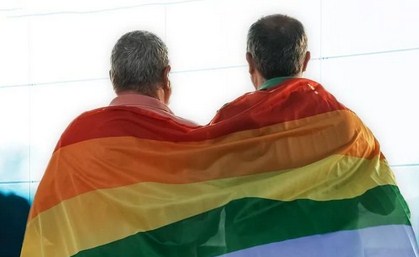According to a recent article in Metro UK, older people in the LGBTQ+ community feel “excluded and isolated” from society as they are left behind by a “youth-celebrating culture”. People over the age of 50 feel less visible “especially within the gay community” as they are less likely “to have familial networks”. AARP conducted a survey that found that social isolation is a real issue in the LGBTQ+ community, with about half of participants (52%) noting they felt left out, lacked companionship, or felt lonely. Participants publicly identify as LGBTQ+ and, therefore, the results may underrepresent older adults who are not open about their sexual orientation or gender identity. Those who feel unwelcome in their community tend to be more isolated and express a strong desire to connect with other LGBTQ+ older adults. Unfortunately, as a result of the Older Americans Act’s exclusion of LGBTQ+ people, there are fewer tailored services for LGBTQ+ people, and LGBTQ+ elders are less likely to access them. However, organizations like SAGE National LGBTQ+ Elder Hotline provide a space for LGBTQ+ older people to talk with friendly responders who are ready to listen.
What resources are available to support LGBTQ+ seniors?
There are several resources available to support LGBTQ+ seniors. Here are some of them:
The Community of LGBT Centers offers programs focused on support, technical assistance, training, and networking opportunities for the elder LGBTQ+ community.
The National Resource Center on LGBT Aging provides a guide for service professionals who work with older adults, providing tools and tips for asking sensitive questions and creating a welcoming environment.
The LGBTQIA+ Health Education Center provides an overview of the unique medical, behavioral health, and social service needs of LGBTQIA+ older adults, as well as strategies to address them.
The Goldsen Institute Global Pride Study and Wellness With Pride Study provide insights into the experiences of LGBTQ+ older adults.
The Alzheimer’s Association offers LGBTQ+ Community Resources for Dementia, which includes finding inclusive and welcoming health care providers, less ability to call upon adult children for assistance, concerns about stigma, and higher rates of poverty and social isolation.
SAGE National LGBTQ+ Elder Hotline provides a space for LGBTQ+ older people to talk with friendly responders who are ready to listen.
These resources are essential to help LGBTQ+ seniors feel supported and connected to their community.

